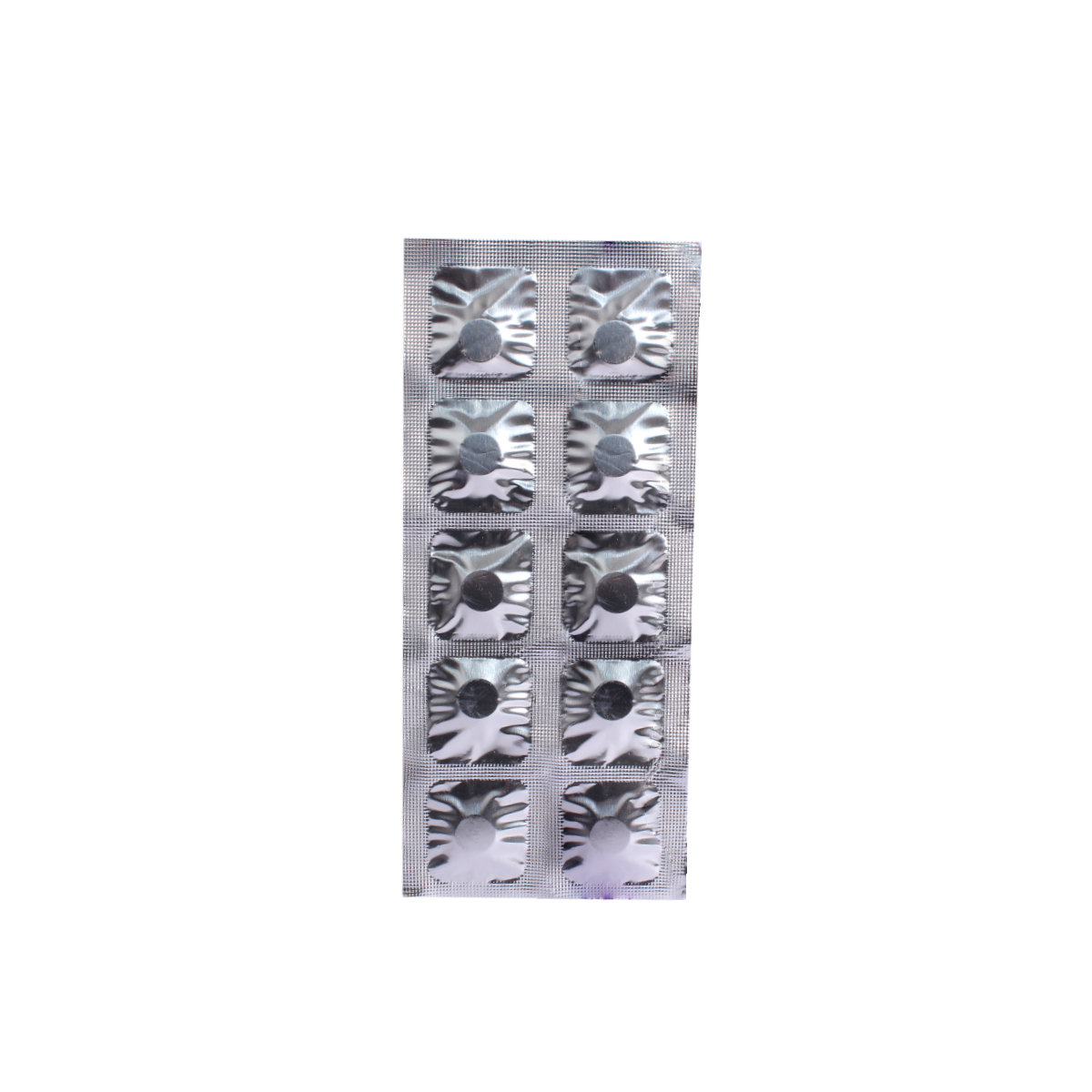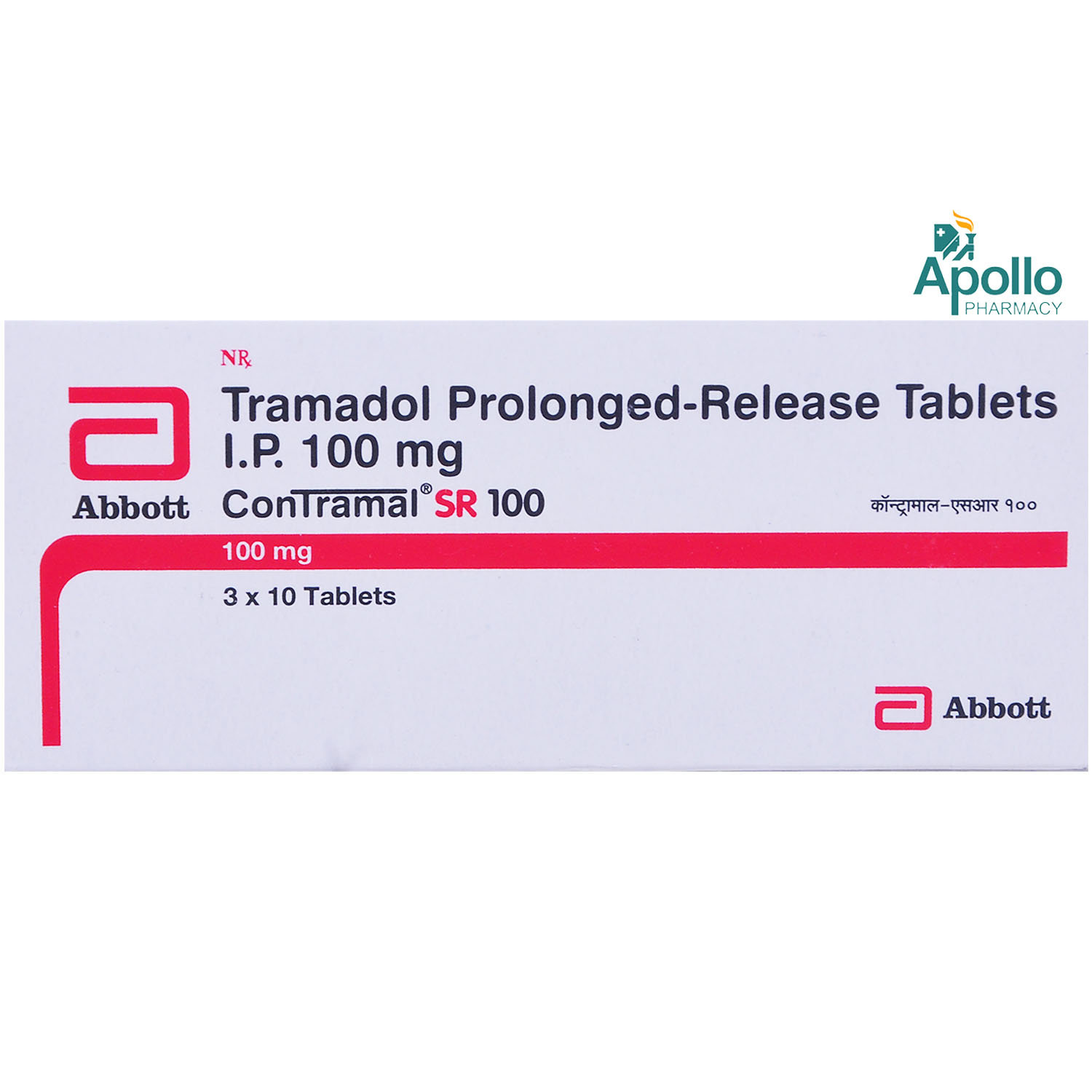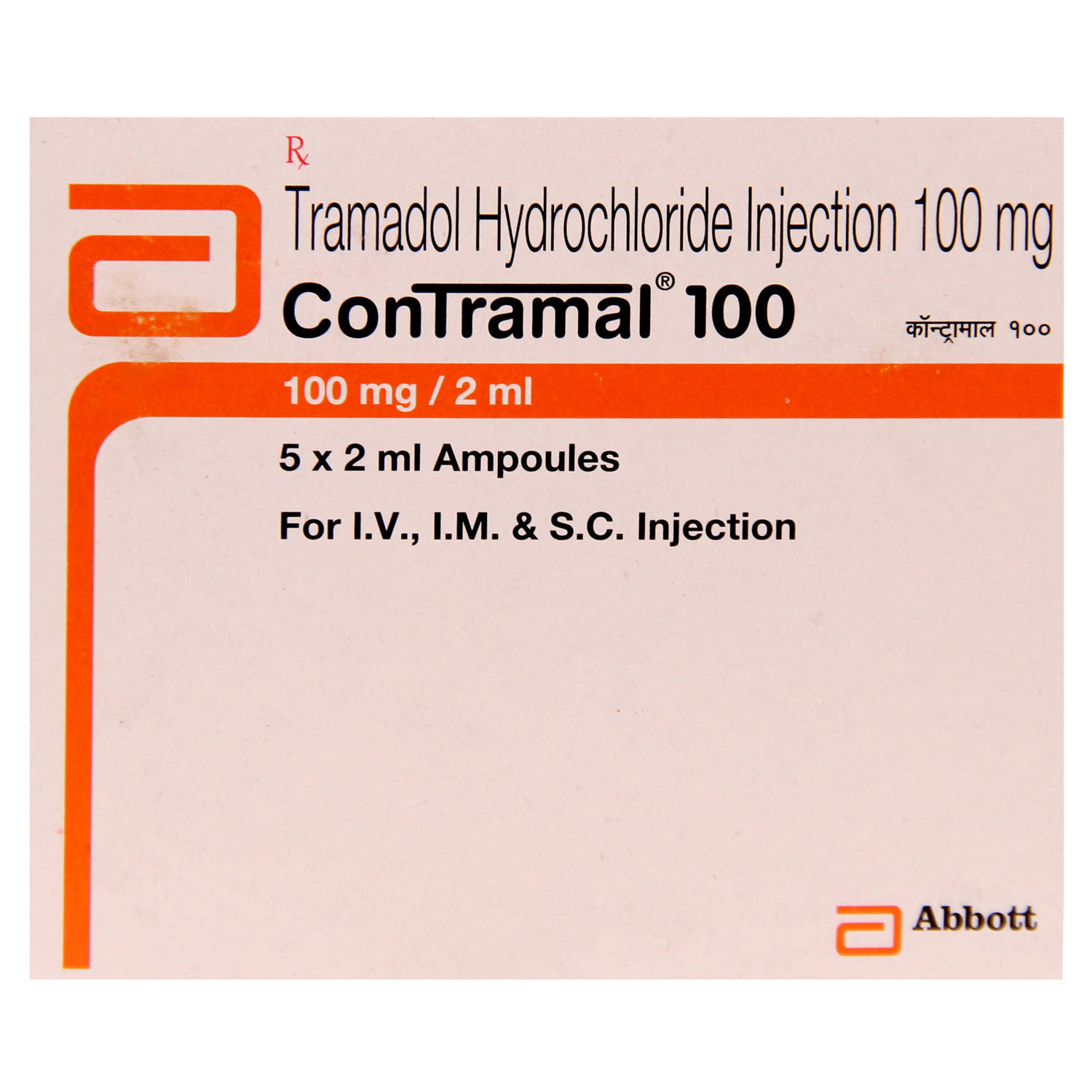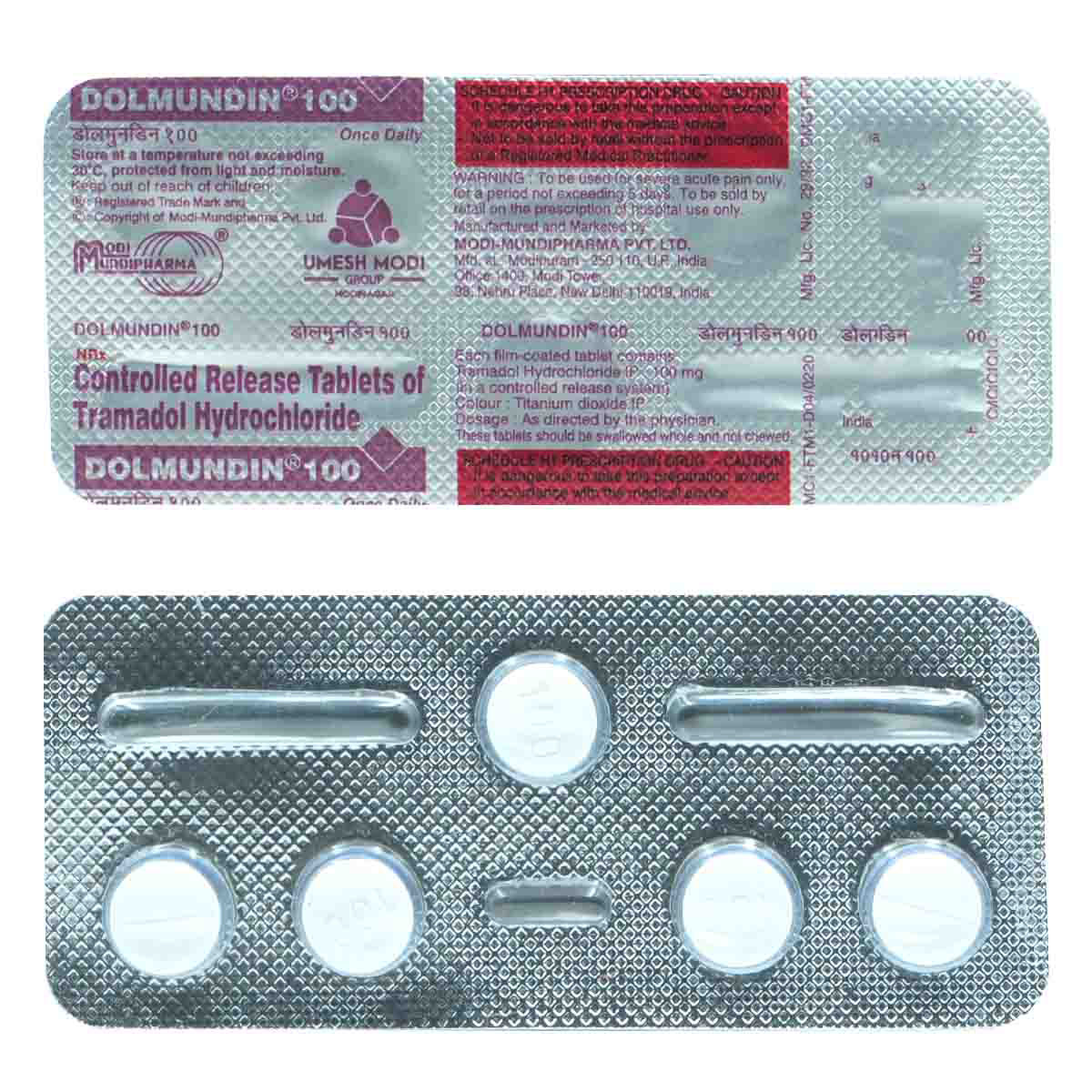Tramadol
About Tramadol
Tramadol belongs to a class of drugs called opioid analgesics (pain killers). Tramadol is primarily used to prevent and treat moderate to severe pain. Pain is an unpleasant sensation caused by an injury or illness. Pain may be acute (short term) or chronic (long term). It can be general (overall body pains) or localized (pain in a specific area of the body).
Tramadol contains Tramadol which works by mimicking the action of endorphins (pain-reducing chemicals) in the brain and spinal cord. Thereby inhibits the transmission of pain signals from nerves to the brain. Also, Tramadol improves the effect of serotonin and noradrenaline (chemical messengers in the brain and spinal cord) and helps in relieving pain.
Take Tramadol as prescribed. Your doctor will advise you how often you take Tramadol based on your medical condition. In some cases, you may experience nausea, dizziness, headache, vomiting, dry mouth, drowsiness, constipation, sweating or tiredness. Most of these side effects of Tramadol do not require medical attention and gradually resolve over time. However, if the side effects worsen or persist, please consult your doctor.
If you are known to be allergic to Tramadol or any other medicines, please tell your doctor. Tramadol is not recommended for children below 12 years of age. If you are pregnant or breastfeeding or have a history of fits, please inform your doctor before taking Tramadol. Do not consume alcohol with Tramadol as it may increase the risk of side effects. Avoid frequent or high doses as it may lead to addiction.
Uses of Tramadol
Medicinal Benefits
Tramadol is a pain killer that works by mimicking the action of endorphins (pain-reducing chemicals) in the brain, thereby, inhibiting the transmission of pain signals from nerves to the brain. Thus, Tramadol improves the effect of serotonin and noradrenaline (chemical messengers in the brain and spinal cord) and helps in relieving pain. Tramadol is used to relieve pain after surgery, pain caused by an injury or illness.
Directions for Use
Storage
Side Effects of Tramadol
- Nausea
- Dizziness
- Headache
- Vomiting
- Dry mouth
- Drowsiness
- Constipation
- Sweating
- Tiredness
Drug Warnings
Do not stop taking Tramadol suddenly as it may cause withdrawal symptoms. Avoid frequent or high doses as it may lead to addiction. If you are known to be allergic to Tramadol or any other medicines, please tell your doctor. Tramadol is not recommended for children below 12 years of age and for children suffering from breathing problems as it may worsen the symptoms of Tramadol toxicity. If you are pregnant or breastfeeding or have a history of epilepsy (fits), please inform your doctor before taking Tramadol. Do not consume alcohol with Tramadol as it may increase the risk of side effects. Tramadol should be taken with caution by the patients taking sleeping pills, tranquillizers, hypnotics or other opiate containing pain killers.
Drug Interactions
Drug-Drug Interaction: Tramadol may have interaction with pain killers (pentazocine, buprenorphine, nalbuphine), blood thinners (warfarin), anti-anxiety drugs (alprazolam), fits related medicines (carbamazepine), medicines used to prevent nausea (ondansetron), antifungal drugs (ketoconazole), antibiotic (ciprofloxacin, erythromycin), anticancer drugs (ceritinib, lapatinib), immunosuppressants (fingolimod), antidepressants (fluoxetine, doxepin), antipsychotics (droperidol), and HIV/AIDS drugs (saquinavir).
Drug- Food Interaction: Tramadol may interact with grapefruit juice. Therefore, avoid intake of grapefruit juice with Tramadol as it may increase Tramadol levels in the body. Also, avoid alcohol consumption while taking Tramadol as it may increase the risk of adverse effects such as drowsiness, dizziness and difficulty in concentrating.
Drug-Disease Interaction: People with severe kidney or liver problems, fits and breathing problems should consult a doctor before taking Tramadol.
Drug-Drug Interactions Checker List:
Safety Advice

Alcohol
unsafeAvoid consumption of alcohol with Tramadol as it may cause drowsiness or increase the risk of side effects.

Pregnancy
unsafeTramadol is a Category C pregnancy drug and is considered unsafe for pregnant women as it may cause withdrawal symptoms in baby after birth.

Breast Feeding
unsafeAvoid breastfeeding while taking Tramadol as it may be excreted in breast milk and cause adverse effects in the baby.

Driving
unsafeTramadol may cause dizziness, blurred vision or drowsiness in some people. It is an offence to drive if Tramadol affects you. Therefore, avoid driving if you feel drowsy, dizzy or experience any vision problems after taking Tramadol.

Liver
cautionTake Tramadol with caution, especially if you have a history of Liver diseases/conditions. The dose may be adjusted by your doctor as required. However, the recommended dose of Tramadol for adult patients with liver cirrhosis is 50 mg every 12 hours.

Kidney
cautionTake Tramadol with caution, especially if you have a history of Kidney diseases/conditions. In patients with creatinine clearances of less than 30 mL/min, dosing reduction might be recommended.

Children
unsafeTramadol is not recommended for children below 12 years of age.
Habit Forming
Diet & Lifestyle Advise
- Do regular exercise such as swimming or walking.
- Drink plenty of water while taking Tramadol to avoid dry mouth.
- Maintain a fibre rich diet and eat plenty of fresh fruits and vegetables to avoid constipation while taking Tramadol.
- Avoid consumption of alcohol and quit smoking.
Special Advise
- Patients with severe liver or kidney insufficiency should avoid taking Tramadol.
- If your children have any breathing problem, please inform your doctor as it may worsen the toxicity symptoms.
- Do not give Tramadol to others. Use Tramadol only when prescribed by a doctor and avoid frequent or doses as it may cause addiction.
- Tramadol may impair mental or physical abilities required for the performance of hazardous activities like driving a motor vehicle or operating heavy machinery.
Patients Concern
Disease/Condition Glossary
Pain: It is an unpleasant sensation caused by an injury or illness. Pain may be acute (short term) or chronic (long term). It can be general (overall body pains) or localized (pain in a specific area of the body). Pain is highly subjective as some people have a high tolerance for pain while others have a low tolerance. Although pain is inconvenient and unpleasant, it hints about causes when something is wrong in the body. Pain may be caused due to cramps, headache, bone fractures, stomach pain, arthritis (swelling of one or more joints), muscle strain or overuse, cuts, flu, irritable bowel syndrome (an intestinal disorder causing stomach pain, diarrhoea or constipation) and fibromyalgia (muscle pain with stiffness and tenderness).
FAQs
Yes, Tramadol may cause withdrawal symptoms such as irritability, anxiety, restlessness, difficulty in sleeping, palpitations (feeling your heartbeat), feeling sick, shivering, sweating, high blood pressure and shaking when you stop taking Tramadol suddenly. Therefore, if you experience any difficulty while taking Tramadol, do not stop taking suddenly and consult your doctor so that the dose may be reduced gradually to avoid withdrawal symptoms.
No, Tramadol is not recommended for use during pregnancy as baby may develop dependence on Tramadol and lead to withdrawal symptoms after birth. Therefore, if you are pregnant or planning for pregnancy, please inform your doctor before taking Tramadol.
Yes, Tramadol may cause dry mouth as a common side effect. It is not necessary for everyone taking Tramadol to experience this side effect. However, drink plenty of water, suck on sugar candy or chew sugar free gum to prevent such side effects while taking Tramadol. If the condition worsens or persist, please consult a doctor.
Yes, Tramadol may cause fits especially when taken in high doses or if you have a history of fits. Therefore, it is recommended to inform your doctor if you ever had fits as it may increase the chance of getting fits and take Tramadol only in doses as prescribed by a doctor.
No, you are not recommended to take Tramadol with antidepressants (medicines used to treat depression) and antipsychotics (medicines used to treat bipolar disorder and psychosis) as co-administration of these medicines with Tramadol may increase the risk of fits. However, please consult a doctor before taking Tramadol with other medicines.
Yes, Tramadol may cause addiction especially if taken for prolonged time. Therefore, Tramadol should be given only for a short duration under strict medical supervision particularly to patients who are susceptible to drug abuse. Take Tramadol only as advised by a doctor as overuse or misuse of Tramadol can lead to overdose or death.











